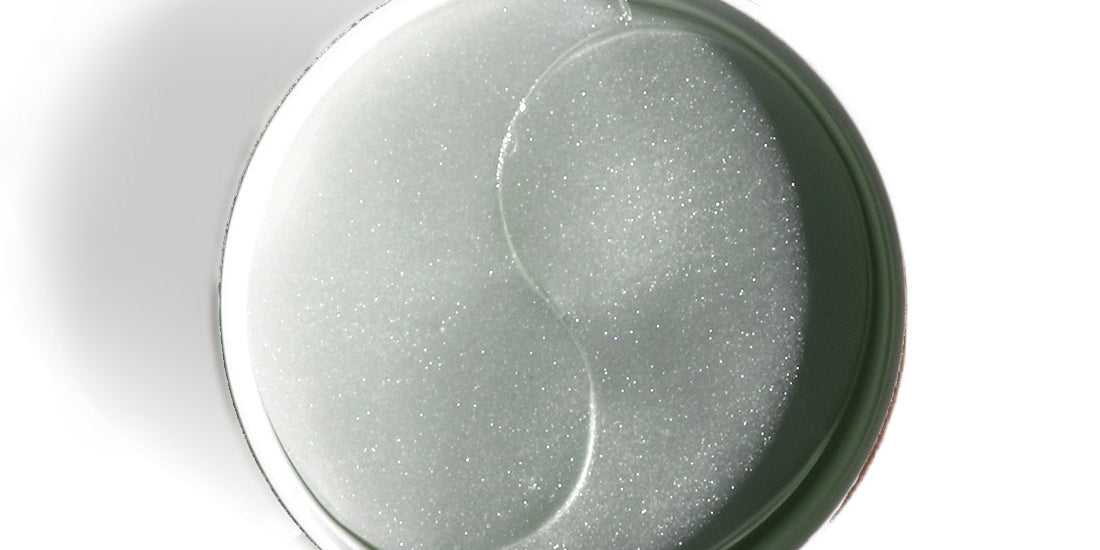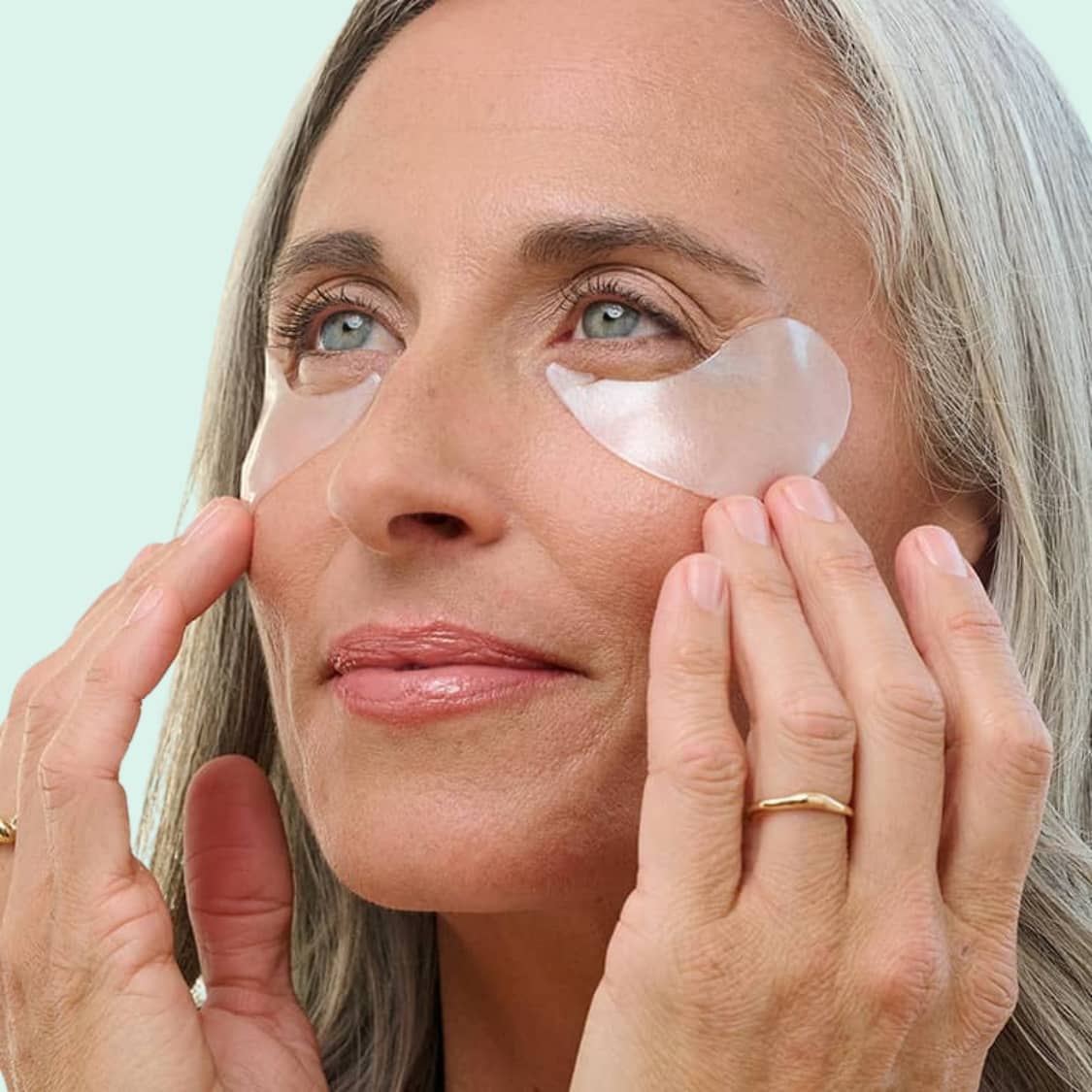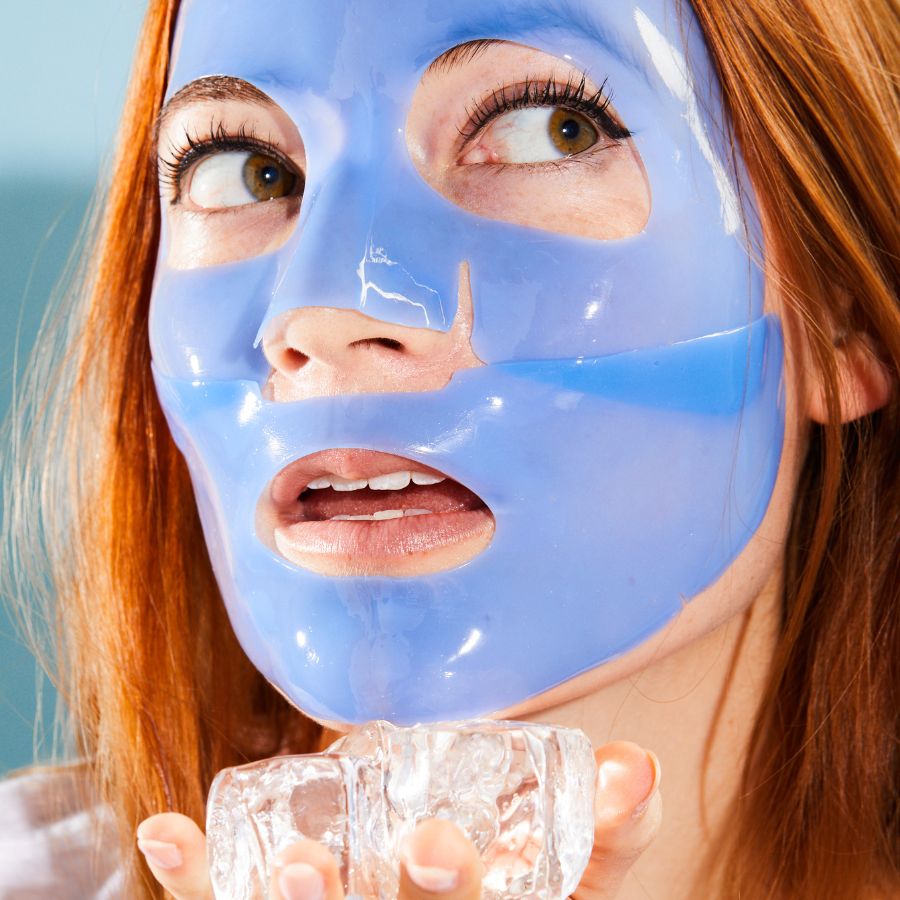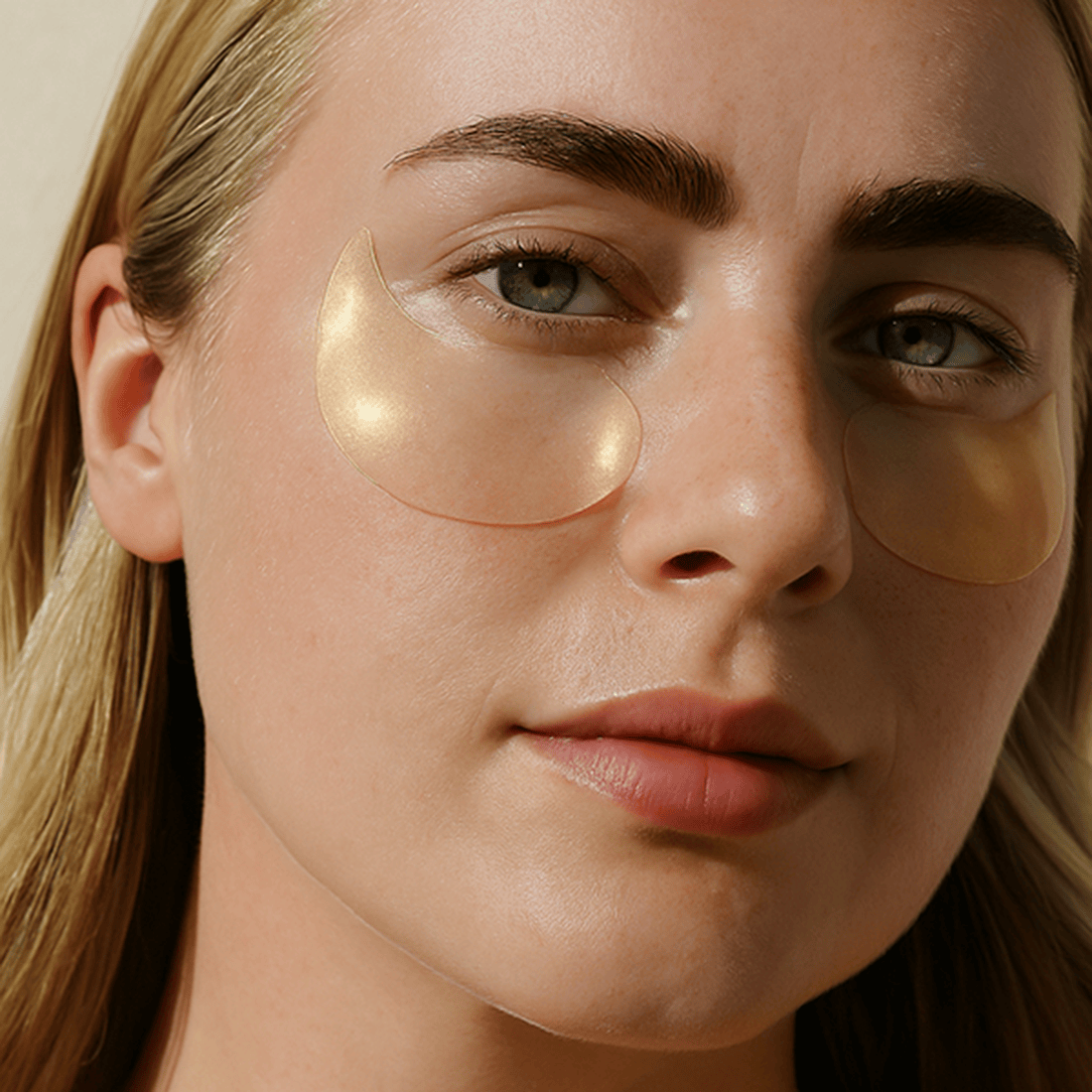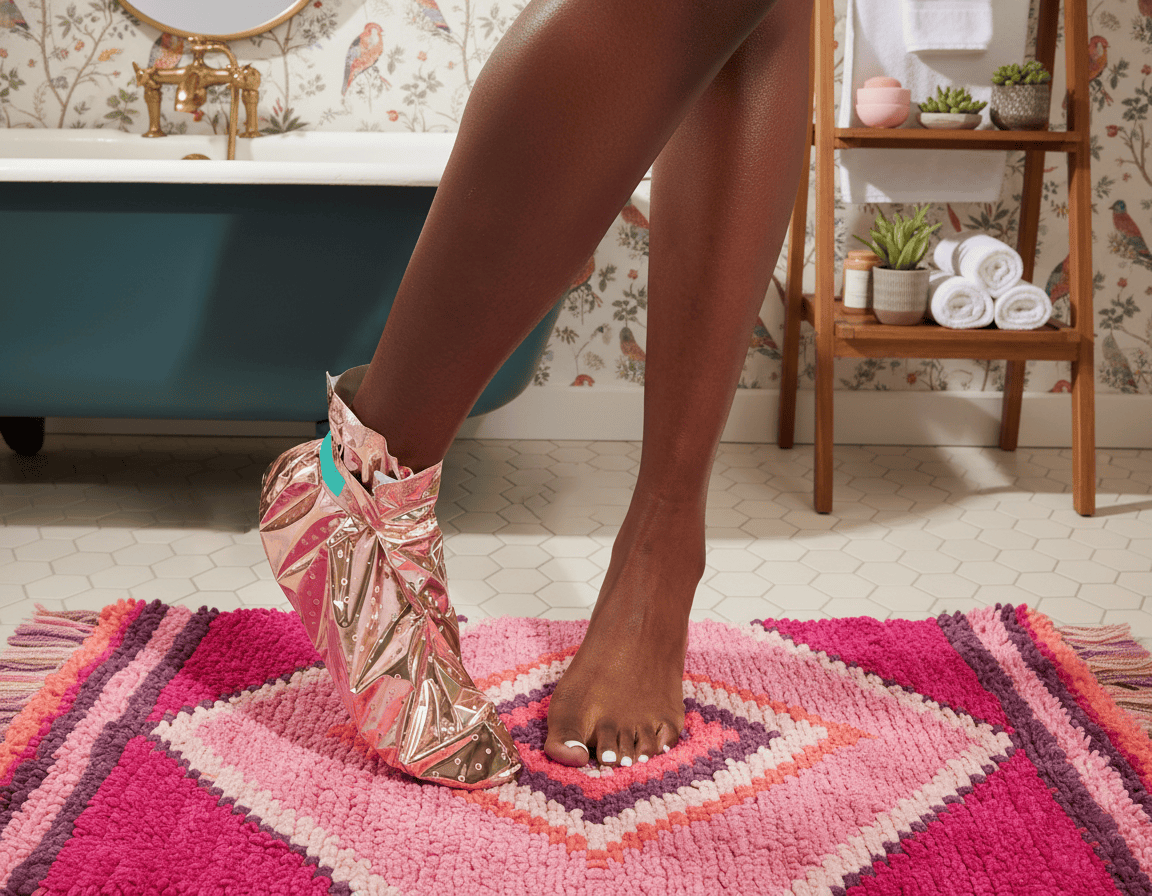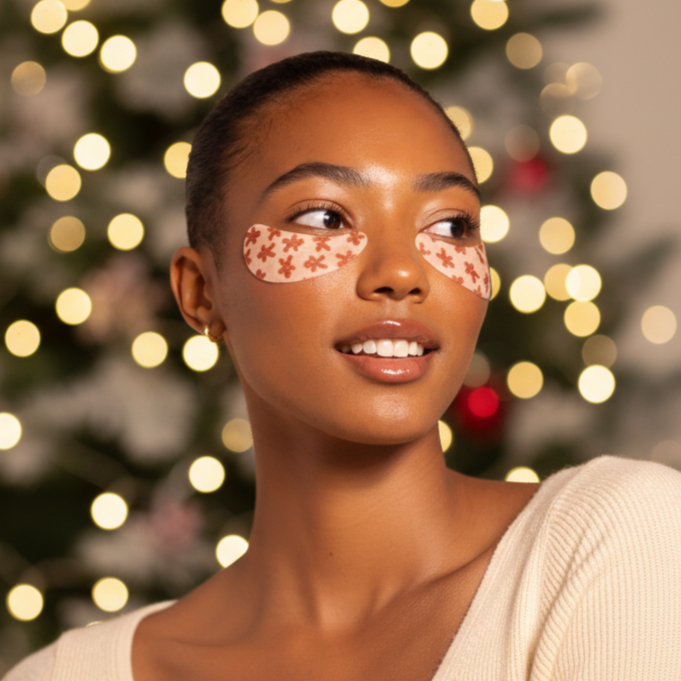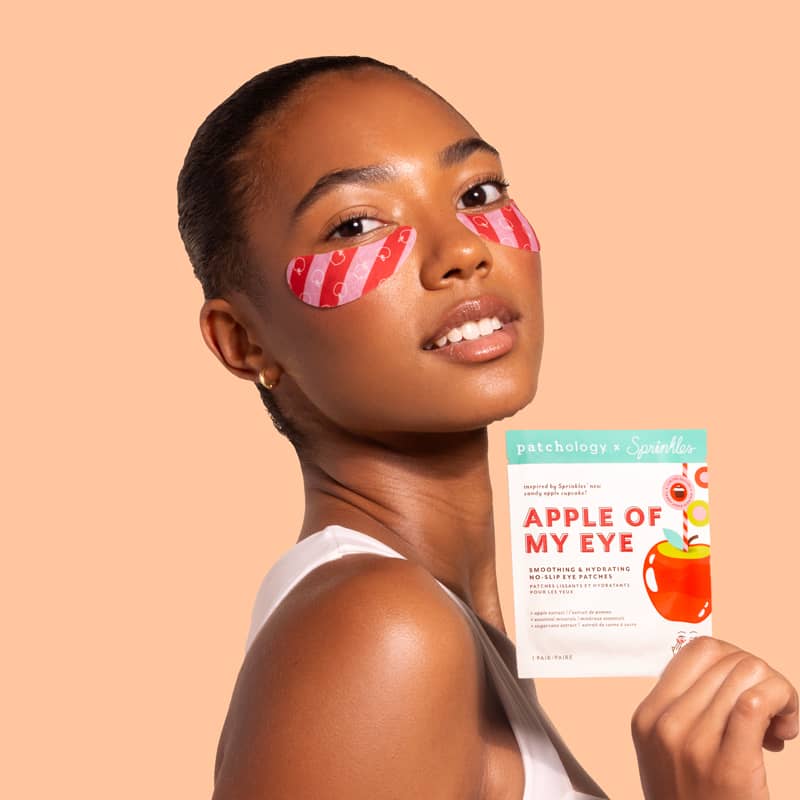Retinol has long been the gold standard for skin smoothing and fine line results. This vitamin A derivative boosts collagen production, fades dark spots, reduces wrinkles, and unclogs pores. For some of us retinol can also cause irritation, dryness, and sun sensitivity depending on the active percent of retinol.
Enter bakuchiol 🌿 - a plant-based antioxidant that delivers many of retinol’s benefits without the harsh side effects. Bakuchiol is known for its ability to smooth the appearance of fine lines while hydrating the skin. It is also gentle on the skin, making it a suitable option for those with sensitive skin.
It is gaining popularity as a natural, gentle alternative to retinol in skincare. Keep reading to learn all about this emerging ingredient and why it's showing up in products like Patchology’s On Ice Hydrogel Face and Eye Masks.

What is Bakuchiol?
Bakuchiol is derived from the seeds and leaves of Psoralea corylifolia, a plant used for centuries in medicine. Also known as “babchi,” this Indian herb has anti-inflammatory, antibacterial, and antioxidant properties.
Research shows that bakuchiol smooths skin by:
- Bakuchiol boosts collagen levels in the skin. Collagen is the protein that keeps skin plump. By increasing collagen and elasticity, bakuchiol smooths out wrinkles.
- Bakuchiol evens skin tone - The antioxidant properties help inhibit pigment production for more even skin tone.
- Bakuchiol can help to prevent acne by balancing oil levels in the skin.
You can learn more about how bakuchiol benefits your skin and how to use bakuchiol in your skincare routine at Everyday Health.
These effects are similar to retinol. But unlike retinol, bakuchiol doesn’t cause dryness, peeling, or photosensitivity.
Bakuchiol vs. Retinol: Key Differences
While bakuchiol and retinol have similar effects, there are some key differences:
- Source: Retinol is a synthetic derivative of vitamin A. Bakuchiol is derived from a plant.
- Side effects: Retinol is associated with irritation, peeling, and sun sensitivity. Bakuchiol has minimal side effects.
- Mechanism: Retinol binds directly to retinoic acid receptors in the skin. Bakuchiol works by regulating gene expression.
- Strength: In lower percentages, bakuchiol is as effective as retinol but with less irritation. In higher doses, prescription retinol remains stronger.
So in summary, bakuchiol offers a natural alternative to over-the-counter strength retinol, with comparable anti-aging benefits and fewer drawbacks.

The Benefits of Bakuchiol for Skin
As a natural retinol alternative, bakuchiol offers several benefits:
- Clinically-proven anti-aging activity - Bakuchiol stimulates collagen and reduces wrinkles as effectively as retinol.
- Antioxidant and anti-inflammatory - The polyphenols in bakuchiol neutralize free radicals and reduce skin inflammation.
- Protects against blue light - Bakuchiol shields skin from blue light emitted from screens.
- Improves signs of photoaging - Bakuchiol minimizes sun damage and discoloration.
- No dryness or irritation - Unlike retinol, bakuchiol doesn’t disrupt the skin barrier or cause redness.
- Safer for sensitive skin - The mild formula is suitable even for reactive skin.
Byrdie features Bakuchiol as the alternative to retinol to learn more about the benefits on this skincare ingredient.
With all of these benefits and minimal side effects, it’s no wonder bakuchiol is gaining popularity as a smoothing ingredient.

How to Use Bakuchiol
Bakuchiol is showing up more frequently in skincare products, often touted as a natural retinol alternative.
Here’s how to incorporate it into your routine:
- Look for bakuchiol in eye gels, face masks, serums, and eye creams at concentrations of 0.5% - 2%.
- Apply bakuchiol products at night after cleansing. Start 2-3 times per week and build up from there.
- Pair bakuchiol with other antioxidants like vitamin C for enhanced effects.
- Since bakuchiol doesn’t increase sun sensitivity, you can use it under SPF in the mornings.
- Expect to see results after 4-12 weeks of consistent use. Be patient - bakuchiol works gradually with less irritation than retinol.
You can learn more about bakuchiol on Harvard Health.

Bakuchiol in Patchology Skincare
Patchology harnesses the power of bakuchiol in two of our Serve Chilled products:
On Ice Hydrogel Face Mask
These cooling, depuffing hydrogel masks combine bakuchiol with peptides and cloudberry extract to hydrate and refresh your skin. The bakuchiol targets fine lines, crow’s feet, dark circles and under eye bags. The peptides work to smooth and plump while cloudberry extract packed with Vitamin C brightens the skin.
On Ice Eye Gels
Infused with bakuchiol, peptides, vitamin C and cloudberry extract, these eye gels take on dark circles, wrinkles, and puffiness. You can revive tired under eyes with these best selling patches. Bakuchiol works to even tone and reduce signs of aging around the delicate eye area while immediately brightening and smoothing.
In both formulas, bakuchiol works alongside other high-performing ingredients to tackle visible signs of aging for brighter, renewed eyes.
The Takeaway
It’s clear why bakuchiol is gaining momentum. This plant-based ingredient rivals retinol for rejuvenating benefits without the drawbacks. Early research shows bakuchiol:
- Works to smooth the skin
- Improves elasticity
- Evens skin tone
- Regulates oil and sebum
With minimal side effects, bakuchiol is ideal for those with sensitive skin or who want to avoid retinol while pregnant or breastfeeding. Look for bakuchiol making its way into more moisturizers, serums and masks.
Try bakuchiol in Patchology’s On Ice Eye Masks and On Ice Hydrogel Mask. Harness bakuchiol’s youth-enhancing powers for renewed, glowing eyes. This natural alternative delivers next-level results without the redness and irritation of retinol.



